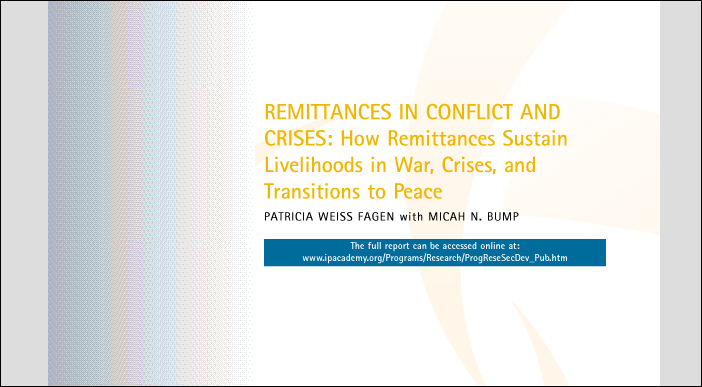 The decision at the 2005 United Nations (UN) World Summit to establish a Peacebuilding Commission reflects the consensus that greater efforts are needed to assist war-torn states make the transition to lasting peace. An important component of peacebuilding is the need to maintain livelihoods during conflict and to ensure sustainable recovery after conflict. In this regard, it has become increasingly apparent that migrant remittances have played a major role in helping individuals and communities affected by conflicts and disasters to survive.
The decision at the 2005 United Nations (UN) World Summit to establish a Peacebuilding Commission reflects the consensus that greater efforts are needed to assist war-torn states make the transition to lasting peace. An important component of peacebuilding is the need to maintain livelihoods during conflict and to ensure sustainable recovery after conflict. In this regard, it has become increasingly apparent that migrant remittances have played a major role in helping individuals and communities affected by conflicts and disasters to survive.
This report explores the literature and themes related to remittances destined for countries or populations living in contexts of conflict, war-to-peace transitions, and/or crises. Conflicts, crises and disasters increase the number and categories of vulnerable people whose survival depends on assistance from outside sources. Yet, much remains to be explored about how remittances relate to emergency relief, rebuilding and, ultimately, to sustaining peace. The information needed for an analysis of remittances in conflict, conflict-prone and crisis countries cuts across four growing areas of investigation: the scope and significance of remittances; migrants and diaspora communities; peacebuilding, relief and development; and the links between remittances, criminal activities and regulations.







